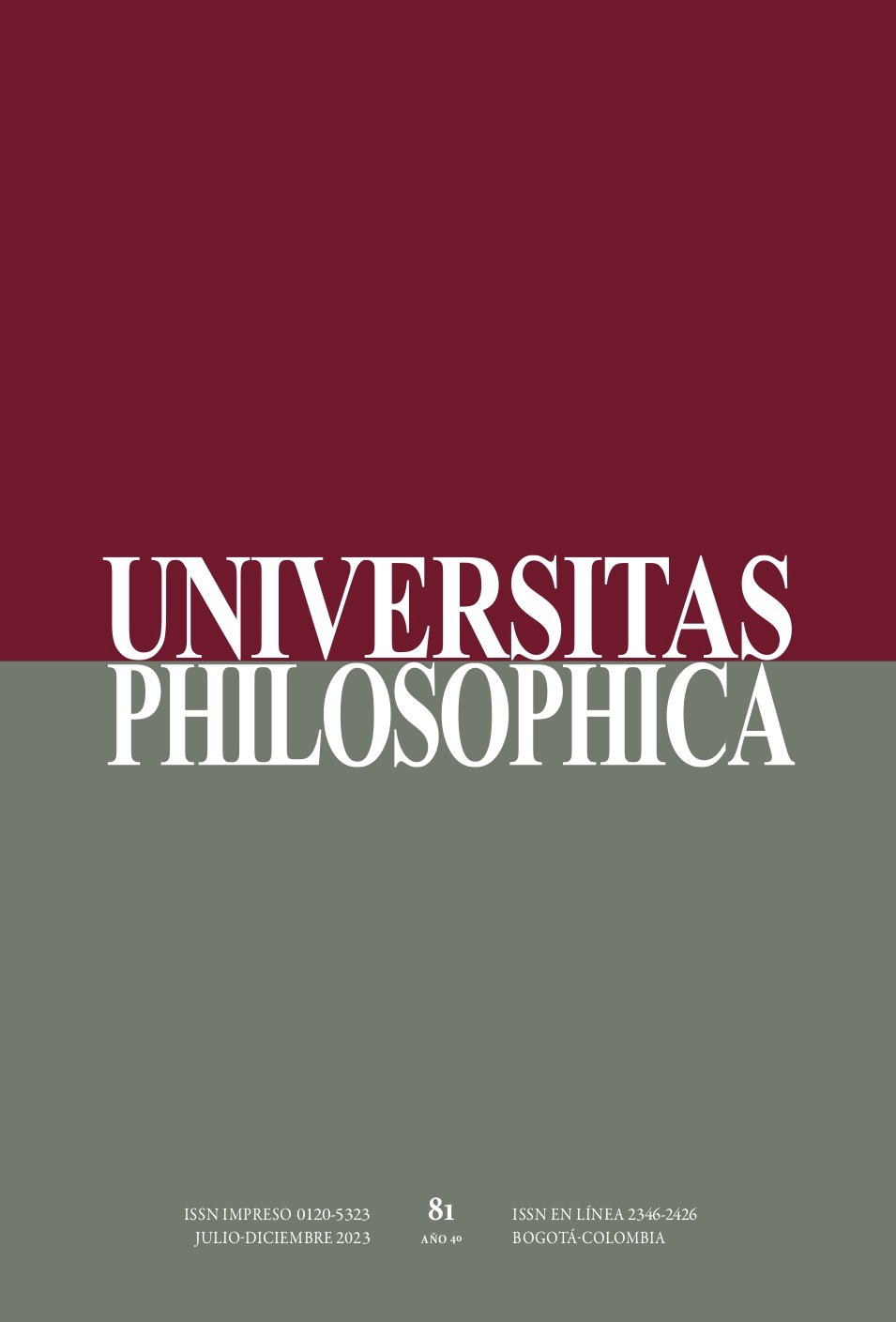Resumen
Este artículo busca plantear esquemáticamente el problema filosófico que fundamenta la tesis principal del filósofo alemán Markus Gabriel, a saber, que el mundo no existe o, en otras palabras, no existe ni es posible concebir una totalidad de lo real ni un elemento trasversal o fundamental de toda la realidad. Este problema parte de la pregunta ontológica por excelencia: ¿qué existe? Esta, a su vez, se basa en la cuestión sobre qué significa existir. El análisis de la noción de existencia mostrará que: 1) no puede ser una propiedad auténtica, pues no permite individuar y distinguir objetos; 2) por lo anterior, no puede haber una definición total de ‘existencia’, por lo que tampoco puede haber un ámbito de objetos caracterizado sólo por ella. La imposibilidad de este ámbito total mostrará que no existe ni es concebible ninguna totalidad de lo real.

Esta obra está bajo una licencia internacional Creative Commons Atribución 4.0.
Derechos de autor 2023 Daniel Esteban Quiroz Ospina


